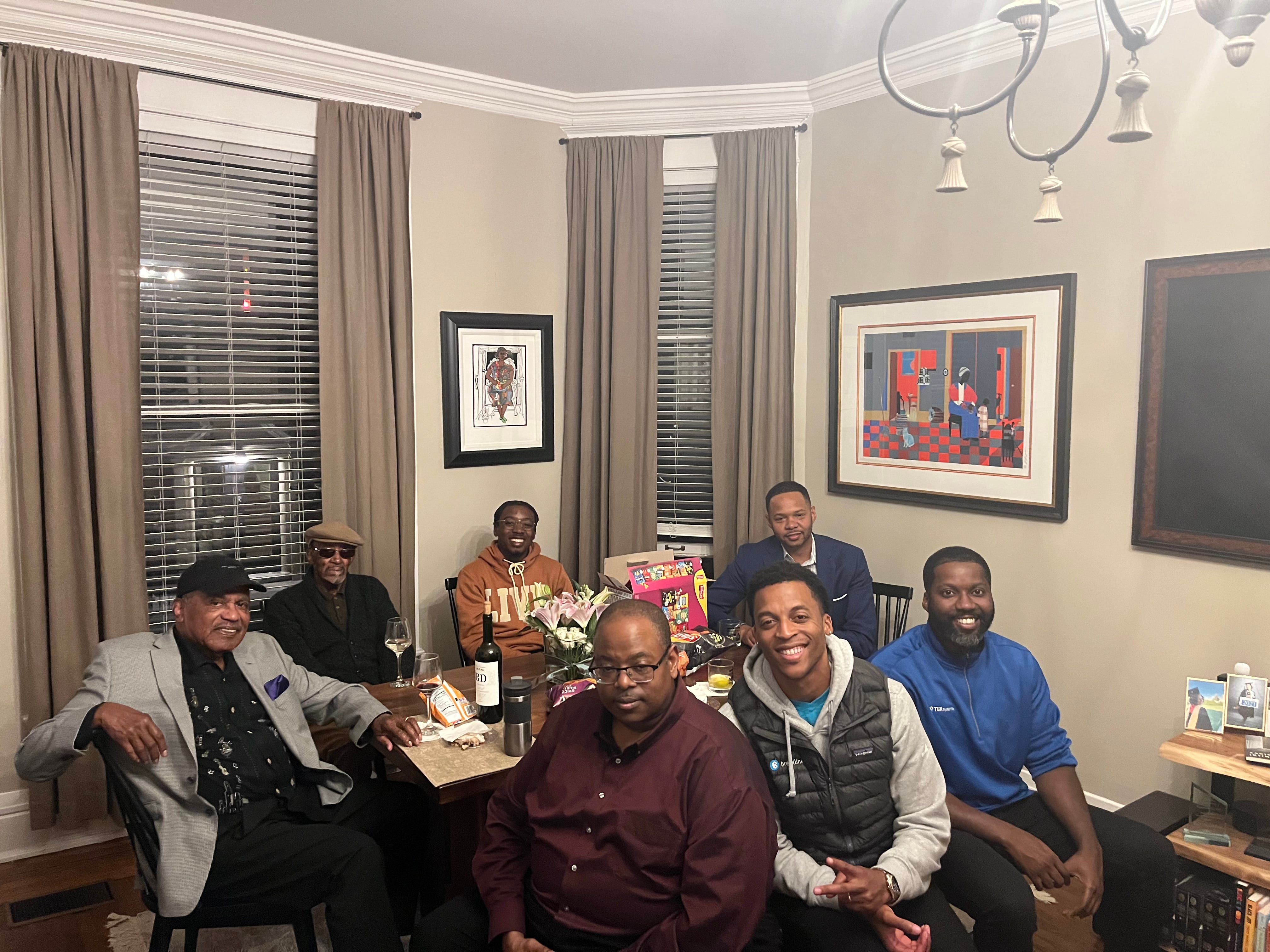Who we are vs. What we do...
For professional Black men, how much of our worth is attached to what our business cards say?

I host a monthly intergenerational jazz listening session for Black men at my home. Over the course of the past few months we’ve had Brothers, ranging in age from their early 20’s to their late 80’s, come together to hang with jazz music as the connective tissue.
As we gathered last week to celebrate the music of the late great legend Wayne Shorter, who had just recently passed, something magical happened. The Brothers began to connect with one another on a personal level as opposed to professionally.
I’m not surprised because jazz is a perfect metaphor for that experience.
So often, as “professional” Black men, we find ourselves in spaces where there are very few people of color, especially other Black men. In order to find the most, or least uncomfortable, way to fit or function inside of those spaces, many bring the validation of what is found on their business cards with them - their company name, their title, the series of letters behind their name on the card, etc.
In doing so, we end up representing ourselves as a function of what we do more so than who we actually are.
After an hour or so of intentional listening to some of Shorter’s classics - Speak No Evil, Infant Eyes, Footprints and Juju - the conversation swung to life. Some of the Brothers knew each other, but some were new to the group and didn’t know the others. As everyone became acquainted, no one introduced themselves by what they did for a living. The main inquiry, if any, was whether or not the person was from Louisville.
It became apparent to one of the Brothers in the group that there was something going on here that was truly special. “It’s very rare for me to get to interact with a group of Black men who are willing to set egos aside and allow themselves to be vulnerable,” confessed one of the Brothers.
With that, we began to unpack why that was indeed the case.
In the capitalistic professional world that me and all of the other Brothers in the group find ourselves enmeshed in on a daily basis, a primal level of competition is often present. This competitive environment can cause us to unnecessarily compete with one another even when there is no rational basis to do so. Every Brother in the group openly confessed that they have felt the urge to do just that at one time or another when they find themselves in spaces with at least one other Black man, when they are the minority in the room.
And the ammunition used in that competition was, more times than not, the things that are found on their business cards.
After an in-depth discussion there were some very powerful takeaways:
Who we are personally, culturally, socially and as a member of family is where our true worth lies
While what we do for a living may contribute to our true or perceived sense of self of worth it is only a part of the overall picture of who we actually are
We must invest our time and resources into who we are (as defined above) because the real return on investment is much greater
After everyone left, I found myself alone in the room with my thoughts and Brother Shorter. I was reminded of a quote that I read on the internet shortly after his passing.
“I think that music opens portals and doorways into unknown sectors that it takes courage to leap into. I always think that there's a potential that we all have, and we can emerge, rise up to this potential, when necessary. We have to be fearless, courageous, and draw upon wisdom that we think we don't have.”
In order for these Brothers and me to get to a point where we are making a life that is more of a function of who we actually are as opposed to just making a living defined by what we do, we have to be fearless, courageous and draw upon the wisdom of one another in spaces and places like these jazz listening sessions.
Valuing ourselves and each other for who we really are, as opposed to our resume/what we do for a living, is something we should all strive for whether we are so-called professionals or everyday laypersons. Seeing beyond the persona of our titles is where a healthier sense of self lies.
I’ve been fortunate to experience firsthand over the past 30 years just how jazz music can help in that regard.
At its essence, jazz music is about a collective sound, a musical conversation, from a group of individuals that is more concerned about who each person actually is and what each has to collectively and individually say in that moment, as opposed to what their professional resume says about how they got to that moment.


Great piece, Sir!
This is absolutely phenomenal Brother Guess! As a grateful participant of these listening sessions I couldn’t agree more with your thoughts and love jazz as a medium for us to build community as Black Men. Thank you for foresight to create these spaces as well as for sharing thoughts brother!